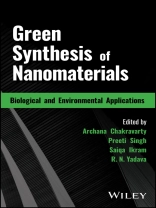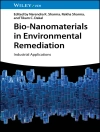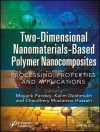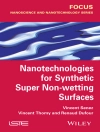Green Synthesis of Nanomaterials
Develop sustainable nanomaterial applications with this cutting-edge introduction
Nanomaterials are one of the most important areas of scientific and industrial development, with impacts in virtually every area touched by materials science. Their unique properties have particularly widespread applications in biomedical and environmental research, where they contribute to sustainable and cost-effective processes. The synthesis of nanomaterials, however, can itself be costly and environmentally damaging; green or sustainable synthesis of nanomaterials is an essential development if the full potential of these transformative materials is to be realized.
Green Synthesis of Nanomaterials: Biological and Environmental Applications presents a cutting-edge overview of green synthesis processes and their applications. It takes a comparative approach in order to emphasize the advantages of green-synthesized nanomaterials over their chemically synthesized counterparts. The result is a vital contribution to biomedical and environmental research and product development.
Green Synthesis of Nanomaterials: Biological and Environmental Applications readers will also find:
* The latest research compiled by a team of established scholars
* Detailed discussion of applications in fields including anticancer and antibacterial research and environmental remediation, among many others
* Coverage of topics including magnetotactic bacteria, green nanomaterials in the textile industry, and many others
Green Synthesis of Nanomaterials: Biological and Environmental Applications is ideal for researchers and scientists in chemistry, biology, materials science, or nanotechnology, as well as for technologists in any industry that can benefit from green-synthesized nanomaterials.
Circa l’autore
Archana Chakravarty, Ph D, is a UGC-Dr. D.S. Kothari Postdoctoral Fellow in the Department of Chemistry, Faculty of Natural Sciences, Jamia Millia Islamia University, India. Her research focuses on green synthesis of nanomaterials and their biomedical and environmental applications.
Dr. Preeti Singh is a Postdoctoral researcher working in the Department of Fibre & Textile Technology, Institute of Chemical Technology, Mumbai, and Indian Institute of Technology, Delhi. Her research focuses on photocatalysis, nanomaterials, sensors, and self-sanitized fabric material.
Saiqa Ikram, Ph D, is Professor in the Department of Chemistry, Faculty of Natural Sciences, Jamia Millia Islamia University, India. Her research concerns polymer science and technology, nanomaterials, and many other related subjects.
R. N. Yadava, Ph D, is Vice Chancellor at Purnea University, Bihar, India. He has researched and published extensively in the chemistry of natural products, medicinal chemistry, and alleopathy.












